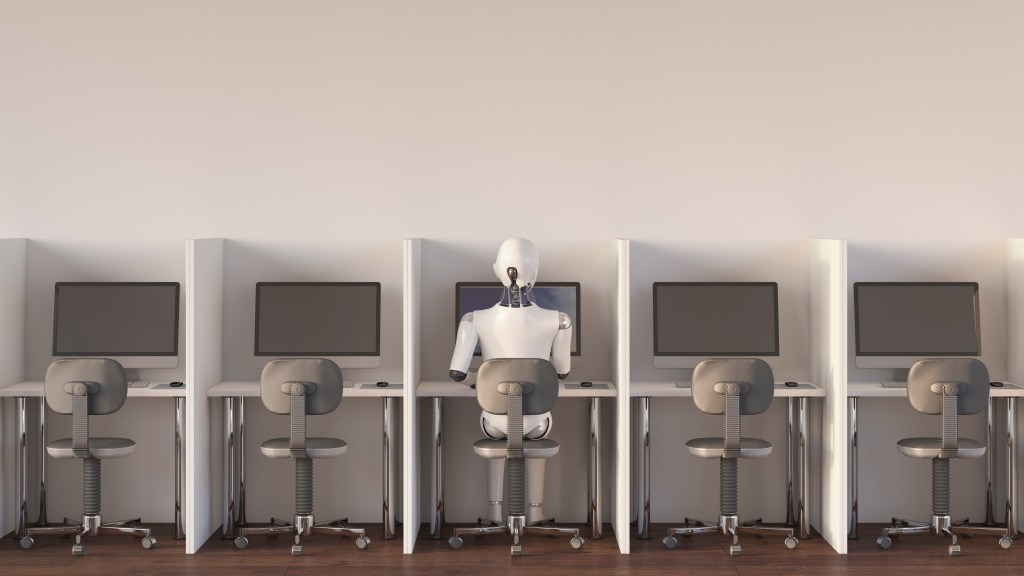Chetan Dube
The tectonic shifts to American culture and society due to the pandemic are far from over. One of the more glaring ones is that the U.S. labor market is going absolutely haywire.
Millions are unemployed, yet companies — from retail to customer service to airlines — can’t find enough workers. This perplexing paradox behind Uber price surges and waiting on an endless hold because your flight was canceled isn’t just inconvenient — it’s a loud and clear message from the post-pandemic American workforce. Many are underpaid, undervalued and underwhelmed in their current jobs, and are willing to change careers or walk away from certain types of work for good.
It’s worth noting that low-wage workers aren’t the only ones putting their foot down; white-collar quits are also at an all-time high. Extended unemployment benefits implemented during the pandemic may be keeping some workers on the sidelines, but employee burnout and job dissatisfaction are also primary culprits.
We have a wage problem and an employee satisfaction problem, and Congress has a long summer ahead of it to attempt to find a solution. But what are companies supposed to do in the meantime?
At this particular moment, businesses need a stopgap solution either until September, when COVID-19 relief and unemployment benefits are earmarked to expire, or something longer term and more durable that not only keeps the engine running but propels the ship forward. Adopting AI can be the key to both.
Declaring that we’re on the precipice of an AI awakening is probably nowhere near the most shocking thing you’ve read this year. But just a few short years ago, it would have frightened a vast number of people, as advances in automation and AI began to transform from a distant idea into a very personal reality. People were (and some holdouts remain) genuinely worried about losing their job, their lifeline, with visions of robots and virtual agents taking over.
But does this “AI takes jobs” storyline hold up in the cultural and economic moment we’re in?
Is AI really taking jobs if no one actually likes those jobs?
If this “labor shortage” unveils any silver lining, it’s our real-world version of the Sorting Hat. When you take money out of the equation on the question of employment, it’s opening our eyes to what work people find desirable and, more evidently, what’s not. Specifically, the manufacturing, retail and service industries are taking the hardest labor hits, underscoring that tasks associated with those jobs — repetitive duties, unrewarding customer service tasks and physical labor — are driving more and more potential workers away.
Adopting AI in manufacturing accelerated during the pandemic to deal with volatility in the supply chain, but now it must move from “pilot purgatory” to widespread implementation. The best use cases for AI in this industry are ones that help with supply chain optimization, including quality inspection, general supply chain management and risk/inventory management.
Most critically, AI can predict when equipment might fail or break, reducing costs and downtime to almost zero. Industry leaders believe that AI is not only beneficial for business continuity but that it can augment the work and efficiency of existing employees rather than displace them. AI can assist employees by providing real-time guidance and training, flagging safety hazards, and freeing them up to do less repetitive, low-skilled work by taking on such tasks itself, such as detecting potential assembly line defects.
In the manufacturing industry, this current labor shortage is not a new phenomenon. The industry has been facing a perception problem in the U.S. for a long time, mainly because young workers think manufacturers are “low tech” and low paying. AI can make existing jobs more attractive and directly lead to a better bottom line while also creating new roles for companies that attract subject-matter talent and expertise.
In the retail and service industries, arduous customer service tasks and low pay are leading many employees to walk out the door. Those that are still sticking it out have their hands tied because of their benefits, even though they are unhappy with the work. Conversational AI, which is AI that can interact with people in a human-like manner by leveraging natural language processing and machine learning, can relieve employees of many of the more monotonous customer experience interactions so they can take on roles focused on elevating retail and service brands with more cerebral, thoughtful human input.
Many retail and service companies adopted scripted chatbots during the pandemic to help with the large online volumes only to realize that chatbots operate on a fixed decision tree — meaning if you ask something out of context, the whole customer service process breaks down. Advanced conversational AI technologies are modeled on the human brain. They even learn as they go, getting more skilled over time, presenting a solution that saves retail and service employees from the mundane while boosting customer satisfaction and revenue.
Hesitancy and misconceptions about AI in the workplace have long been a barrier to widespread adoption — but companies experiencing labor shortages should consider where it can make their employees’ lives better and easier, which can only be a benefit for bottom-line growth. And it might just be the big break that AI needs.
Deep Science: Keeping AI honest in medicine, climate science and vision































Comment